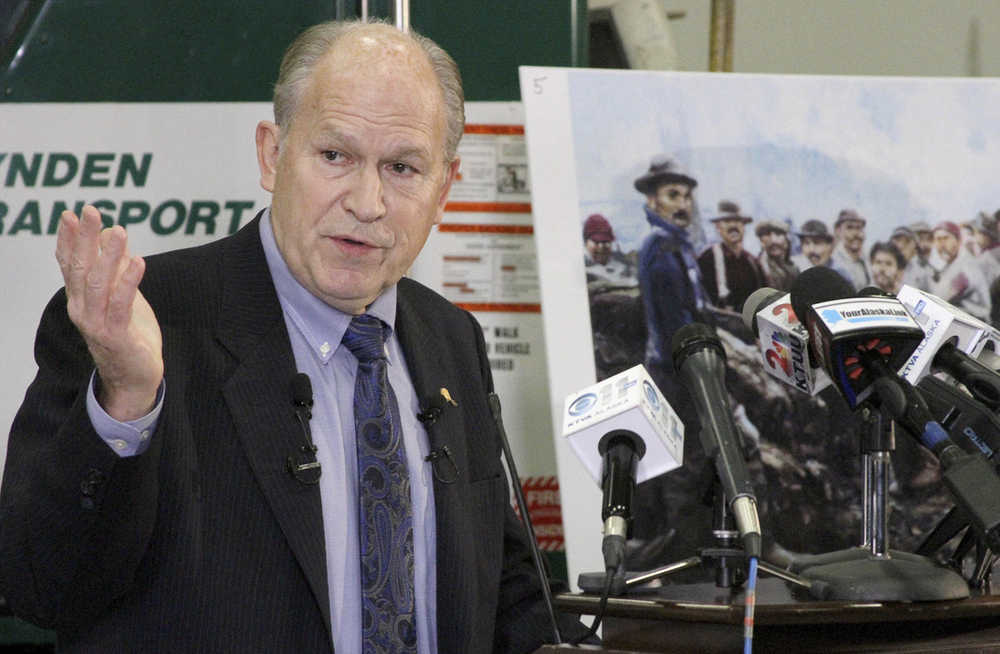JUNEAU — Budget details released by Gov. Bill Walker’s office show a deficit of about $427 million next year, a drastic change from the half-billion dollar surplus projected when he announced his budget plans last week.
The fiscal summary released last week mistakenly showed oil production tax revenue and royalties going into the general fund, where it showed up as revenue the state had available to spend, Walker budget director Pat Pitney said. Instead, that money will go into the earnings reserve account of the Alaska Permanent Fund under Walker’s plan, she said. A summary released late Tuesday afternoon reflected that change.
“We’re making so many changes to the normal course of business in developing this plan,” Pitney said. The shift in where the oil money is deposited is one of them, and Pitney said she didn’t catch it right away.
Alaska faces an estimated $3.5 billion budget deficit amid chronically low oil prices, and Walker’s plan to fill that gap is complicated. It involves draws from savings for a transitional fund for oil and gas tax credits and beefing up the earnings reserve account.
The administration is proposing a $1.2 billion transitional fund as Walker seeks to turn the tax-credit system into a loan program. His office has said the state will honor existing commitments for credits.
The administration also is proposing putting oil tax revenue and half of mineral royalties into the permanent fund and using money generated from the fund to provide an estimated $3.2 billion annually to help finance state government. The earnings reserve would need to be fattened with a $3 billion transfer from savings to provide a starting balance the administration sees as needed for a sustainable draw.
Walker’s plan — which also includes an income tax and increases in other taxes — is far from a done deal, with Republican legislative leaders seeking deeper budget cuts than Walker is proposing and some Democrats saying they’re concerned about the effect on working-class Alaskans.
The administration is proposing moving money from the constitutional budget reserve, which generally requires a three-quarter vote of each the House and Senate to tap, to the easier-to-access statutory budget reserve, which is currently depleted. Support from minority Democrats was needed earlier this year in the House to reach the three-quarter threshold to use money from the constitutional budget reserve to help balance the budget. There was a drawn-out fight that took two special sessions to resolve.
Going forward, Pitney said the administration hopes to draw about $135 million from earnings on savings outside the earnings reserve account that could be put toward the budget. If the money is going to be used that way, the administration doesn’t want it to be subject to a three-quarter vote every year, she said. Having the money in the statutory budget reserve “avoids an extraordinary action every year for what is now our ordinary way of doing business,” Pitney said.
The target for a balanced budget under Walker’s plan is fiscal year 2019, which begins July 1, 2018.

